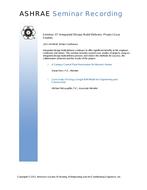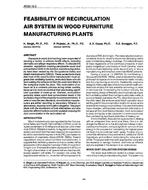A major cause of discomfort in warm environments where sweating is present is moisture on the skin surface or skin wettedness, defined as the fraction of skin covered with sweat necessary to account for the observed evaporative heat transfer. Local skin wettedness is a function of the local sweat secretion rate and its evaporation, which in turn is dependent on (1) the water vapor pressure gradient between skin surface and ambient air and (2) the vapor resistance of the intervening clothing and its associated boundary air layer. Vapor pressure under clothing can be measured with miniature dew-point sensors on the skin surface. Local skin wettedness is deduced from measurements of skin and dew-point temperature. Such observations are compared to predictions from a physiological model of human temperature regulation, which model has a single core compartment and the skin node is segmented into six regional areas to account for local sweat rates, clothing characteristics, and mass transfer phenomena. Studies of local skin wettedness resulting from a clothing ensemble may lead to improved designs of warm weather clothing with greater physical comfort and lower heat strain.
Units: Dual
Citation: ASHRAE Transactions, 1985, vol. 91, pt. 2A, Honolulu, HI
Product Details
- Published:
- 1985
- Number of Pages:
- 10
- File Size:
- 1 file , 730 KB
- Product Code(s):
- D-HI-85-2886


